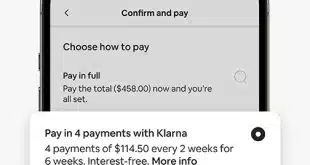PayPal Holdings Inc. has been talking for more than a year about allowing users of its popular Venmo person-to-person payments app to use the app to pay merchants. On Tuesday, the payments company threw the door wide open for Venmo, announcing it can now be used to pay at as many as 2 million PayPal-accepting merchants in-app or on the mobile Web.
“We’re dramatically expanding the number of places you can use Venmo to pay by leveraging the unrivaled scale of the PayPal merchant network,” said Bill Ready, PayPal’s chief operating officer, in a blog post.
Tuesday’s news expands on an opening PayPal created earlier to allow purchases on Venmo. Last year, PayPal began allowing select merchants, including moving services Delivery.com and Dolly, to accept Venmo within their own native apps.
The rationale behind the latest move, in part, is to help merchants reach Venmo’s fabled Millennial users and extend their reach through the app’s social network, Ready said. “The Venmo social feed represents an entirely new way for merchants to increase awareness and open new purchase opportunities,” he said in his post.
But bringing Venmo to merchants offers benefits to PayPal, as well. While the P2P app is perhaps the most popular in the country, users pay no fees, leaving a revenue gap PayPal may be able to fill with merchant-acceptance fees. “Merchants will pay the same fees for Venmo payments as they do for PayPal payments,” a PayPal spokesman tells Digital Transactions News. PayPal’s merchant fees typically start at 2.9% plus 30 cents and go down with added volume.
The move also could draw important merchants closer to PayPal, the company said. “We’re seeing in some instances that the appeal of Venmo has prompted some of the largest and most influential U.S. merchants to expand existing or begin new processing relationships with PayPal,” Ready said.
And bringing Venmo to merchants also means tapping into a consumer base not often associated with PayPal itself. “This announcement … signals that Venmo users (who often don’t even associate their use of it with PayPal, and are a very different demographic than aging PayPal users) can leverage the parent’s POS footprint,” says Steve Mott, principal at BetterBuyDesign, a Stamford, Conn.-based payments consultancy, in an email message.
This week, users will start receiving invitations within the latest version of the app to start using Venmo for purchases. Once they link their Venmo account, they can start filling a shopping cart and tap the “PayPal” button to check out. That will bring up a “Venmo” option to pay, according to a blog post by Ashley Phillips, lead product manager for commerce at PayPal.
As with Venmo P2P payments, users can broadcast their buys to friends through the service’s social network and split the cost with others. The app also tracks users’ purchases, listing what they bought, when, and where. More features could be on the way. “We will continue to test, introduce and expand features that allow people to use Venmo to split, share, and pay in new ways,” Phillips said in her post.
PayPal has already harnessed Braintree, its e-commerce-processing unit, to help enable the new service. Braintree acquired Venmo in 2012, a year before it was itself acquired by PayPal. Fashion marketplace Poshmark and the Save the Children charity are two of the first Braintree clients to start accepting Venmo, Jay Parekh, director of business development at Braintree, said in yet a third blog post. Braintree has also created a so-called sandbox where merchants can experiment with Venmo payment flows, he added.
Physical stores could be next for Venmo. “We’re exploring ways to provide even more options for people to shop with their accounts online and in stores. These explorations are still in their early days,” says the spokesman. Last month, PayPal began testing a plastic Venmo debit card, which could play a role in any future in-store plans.





